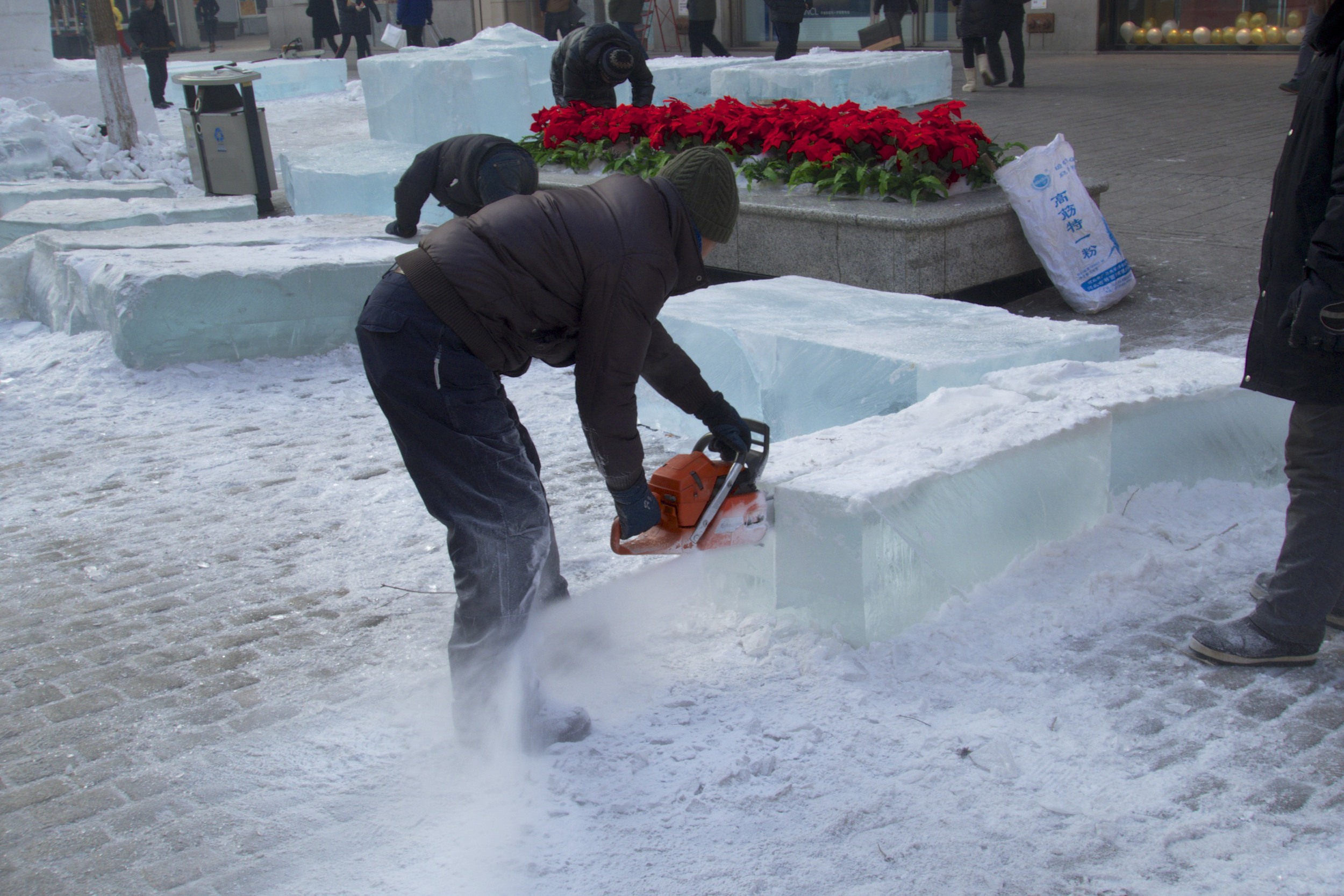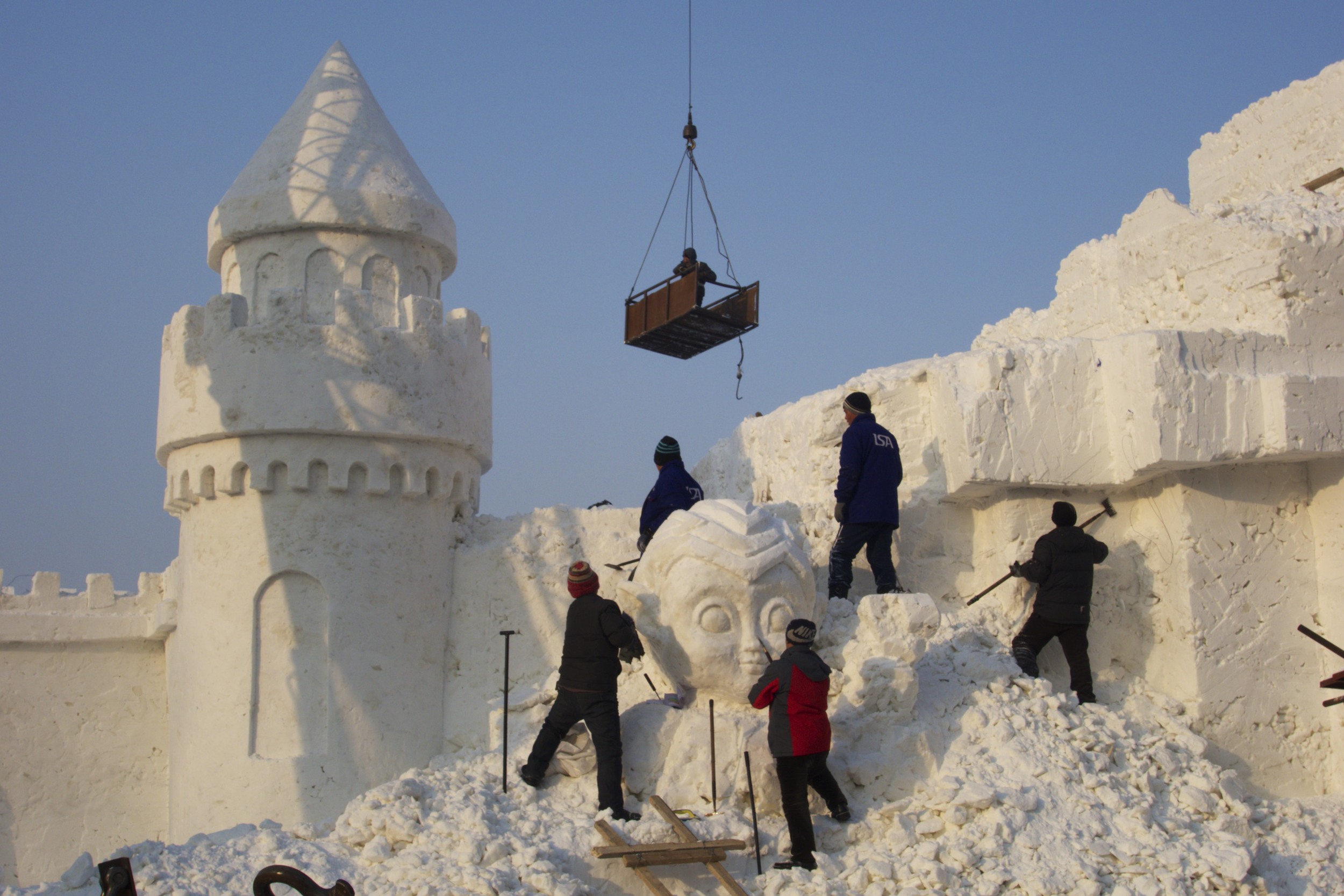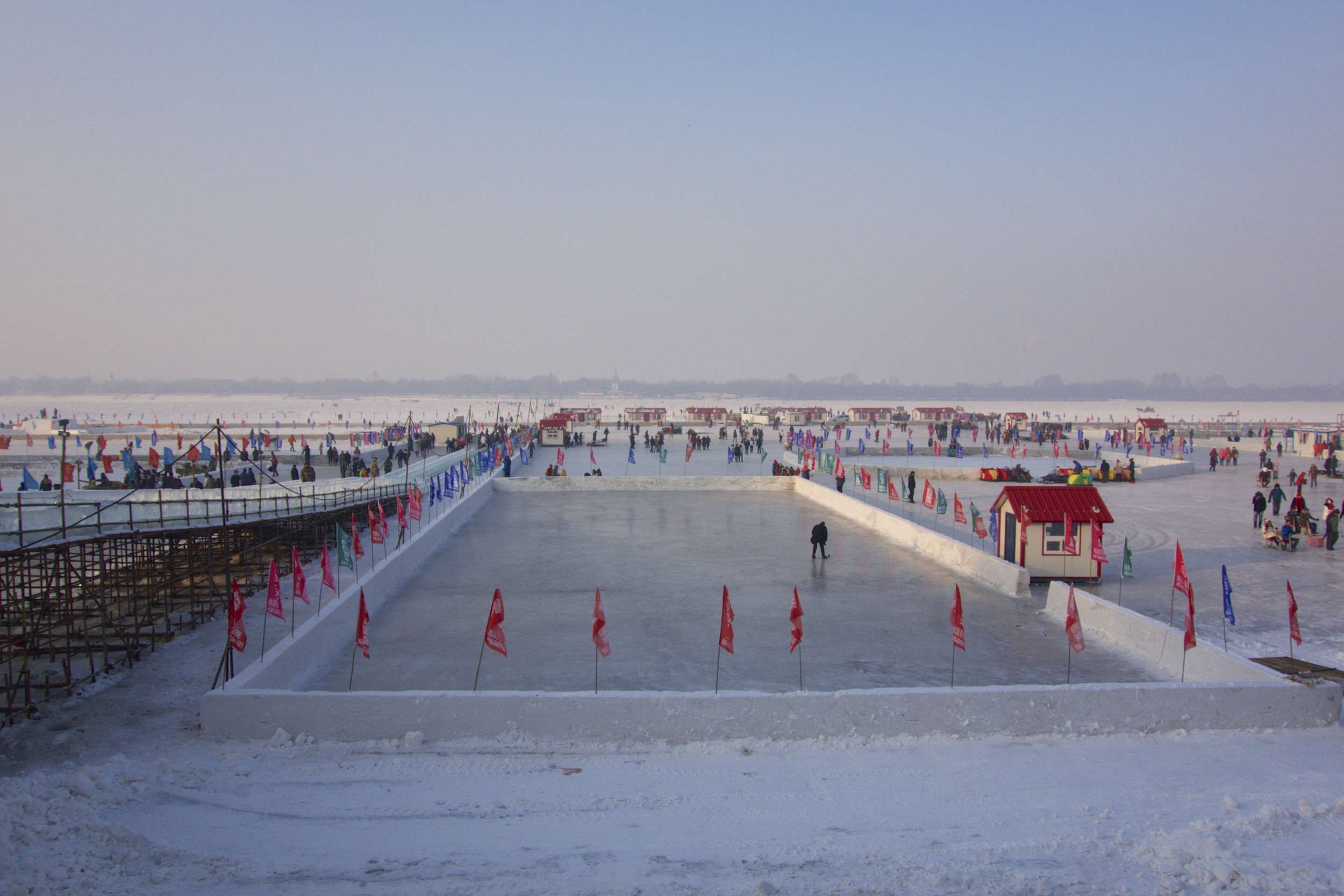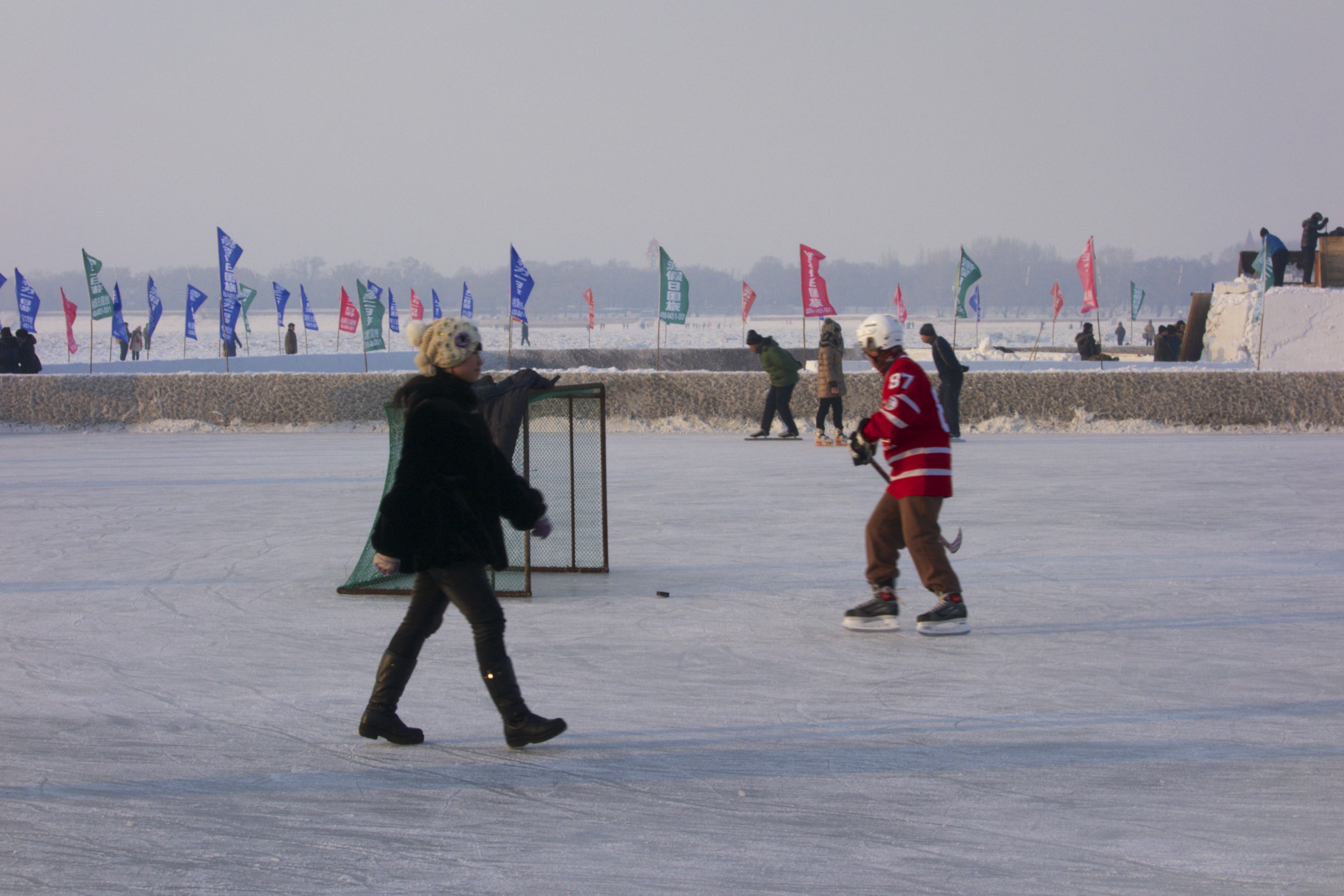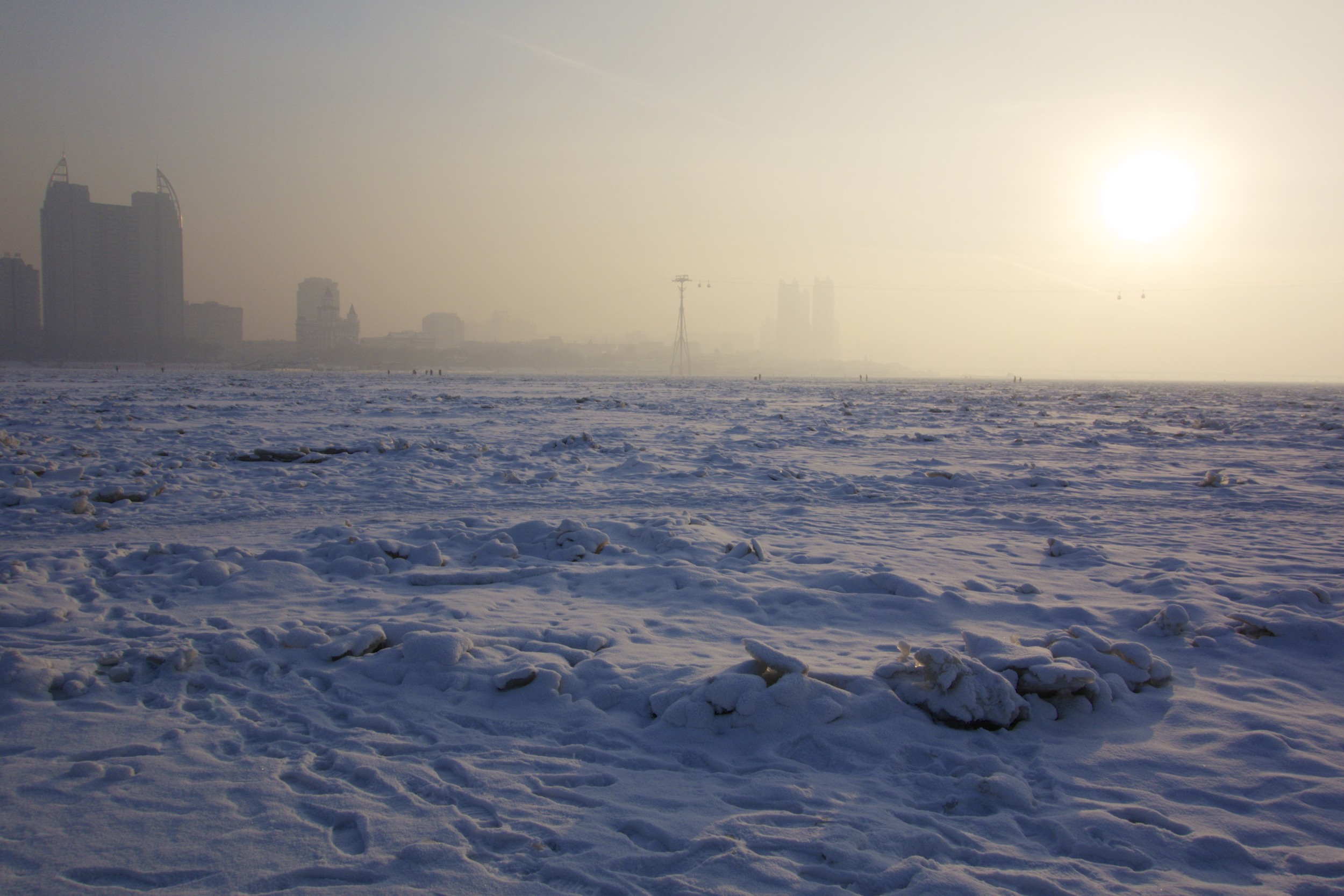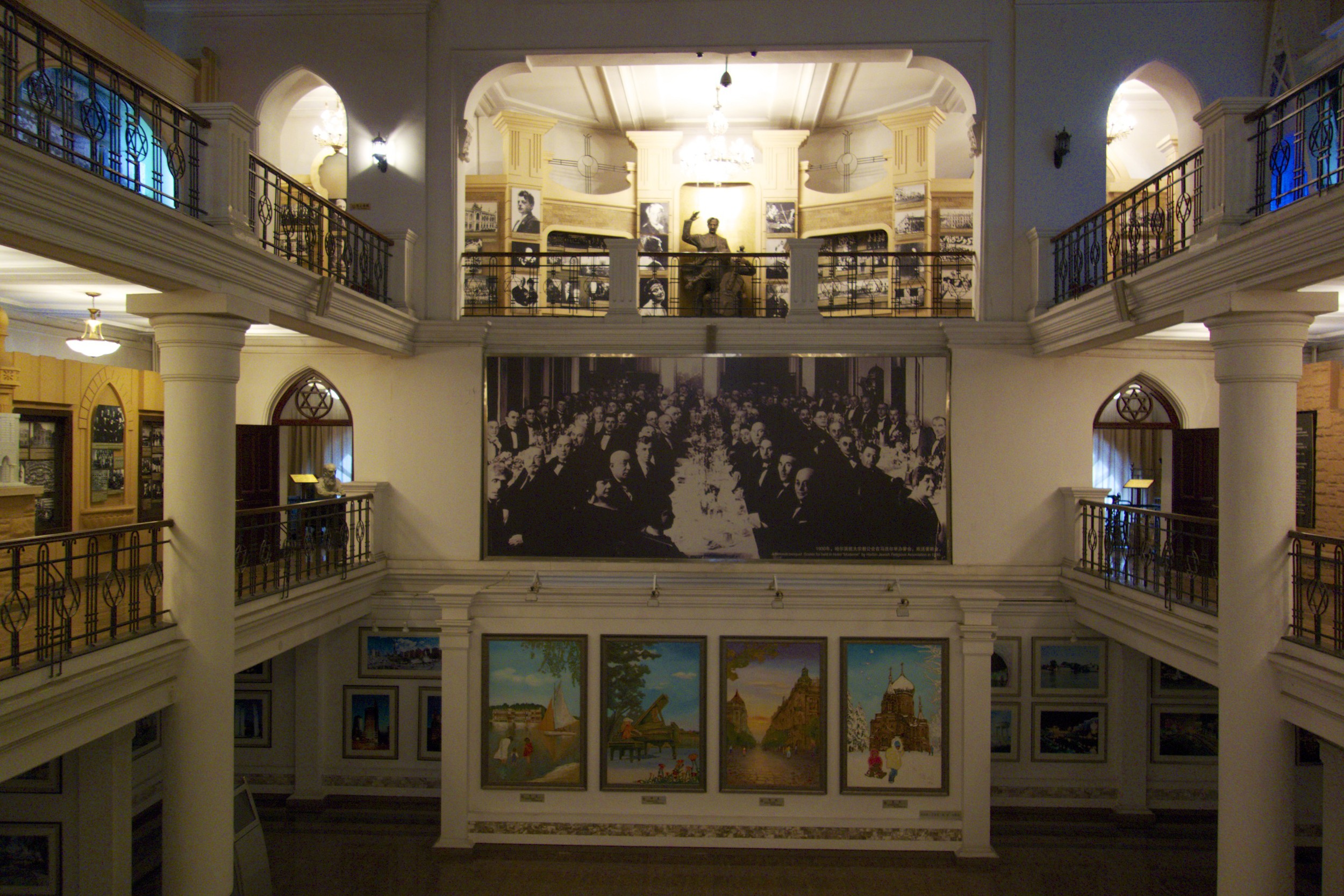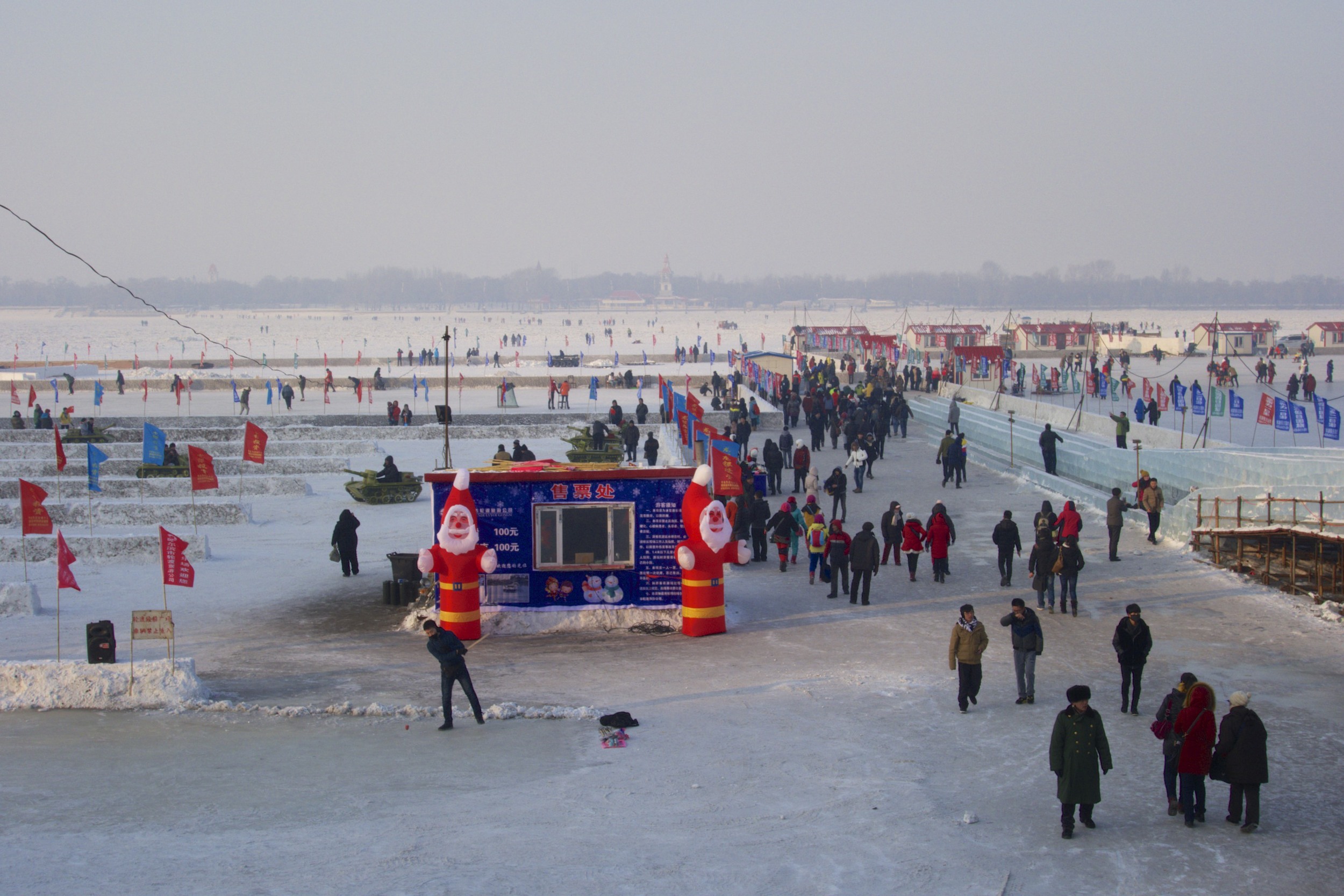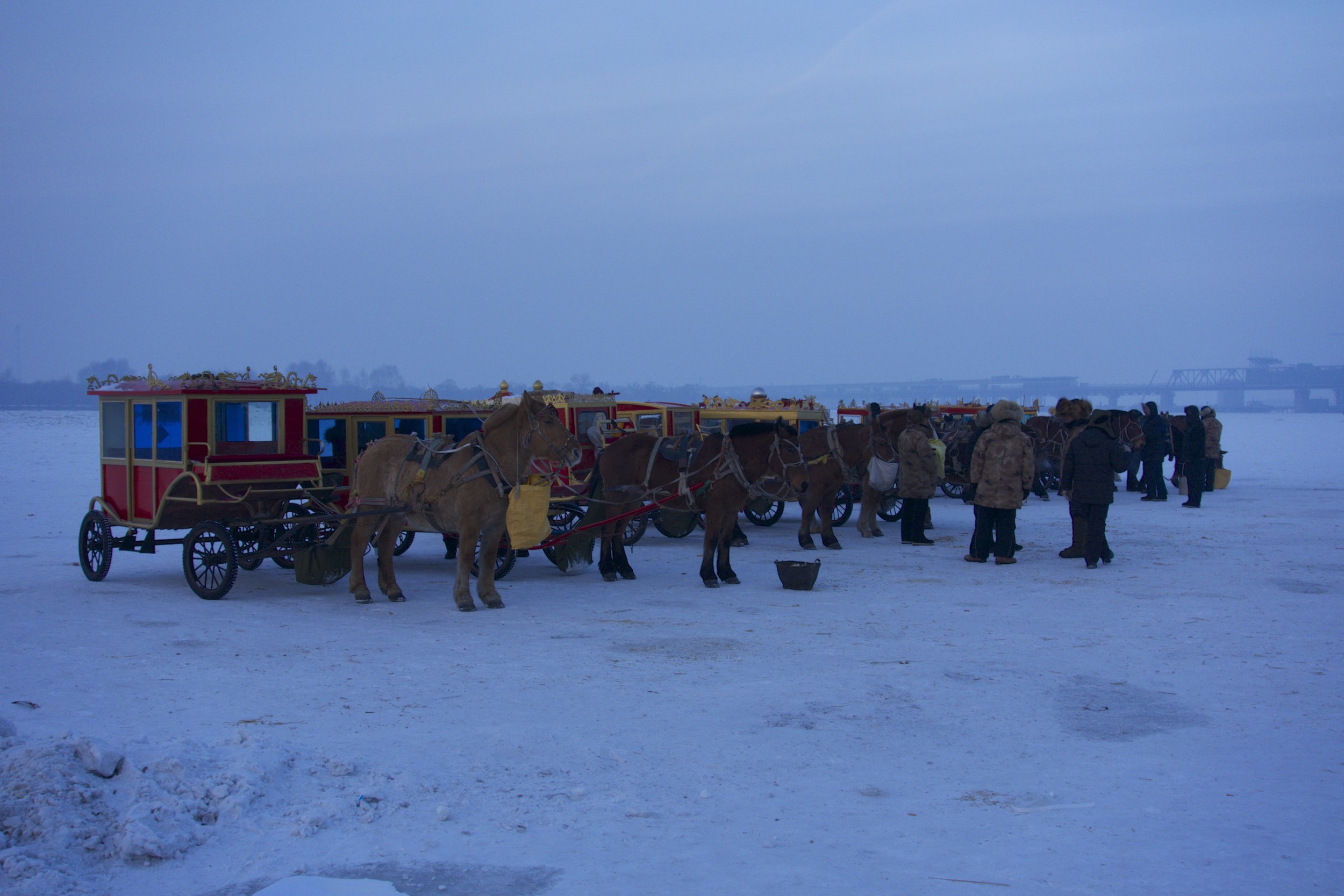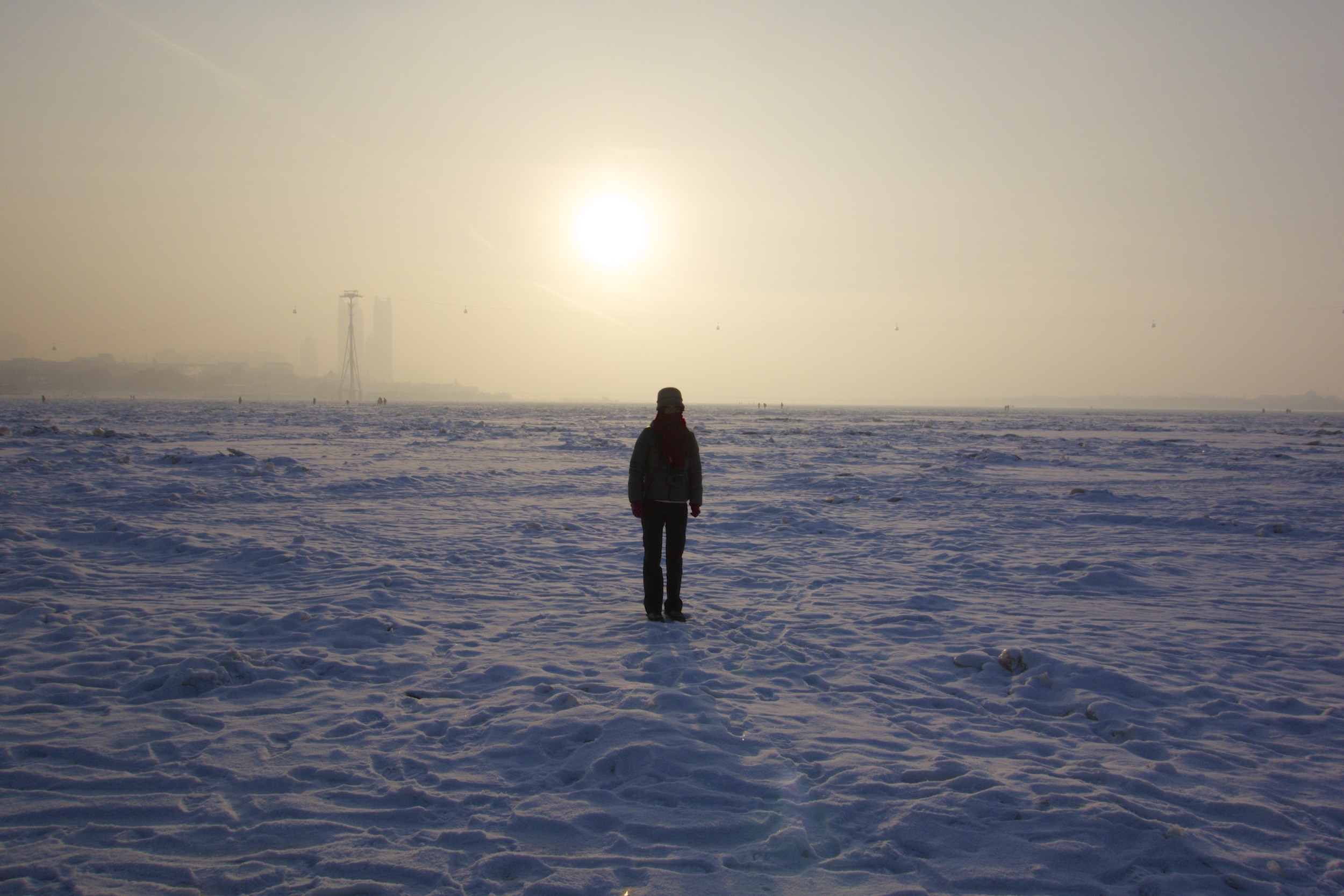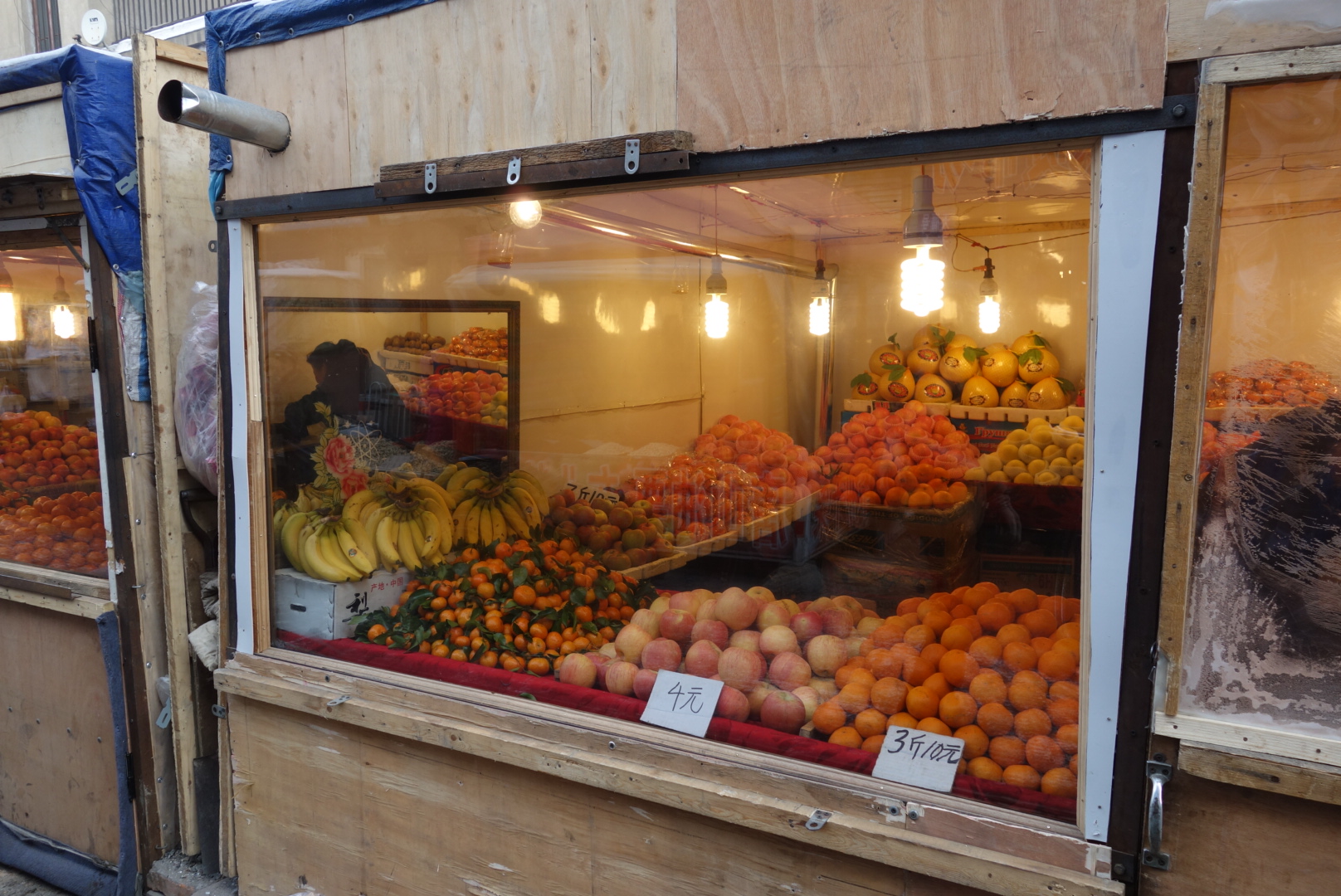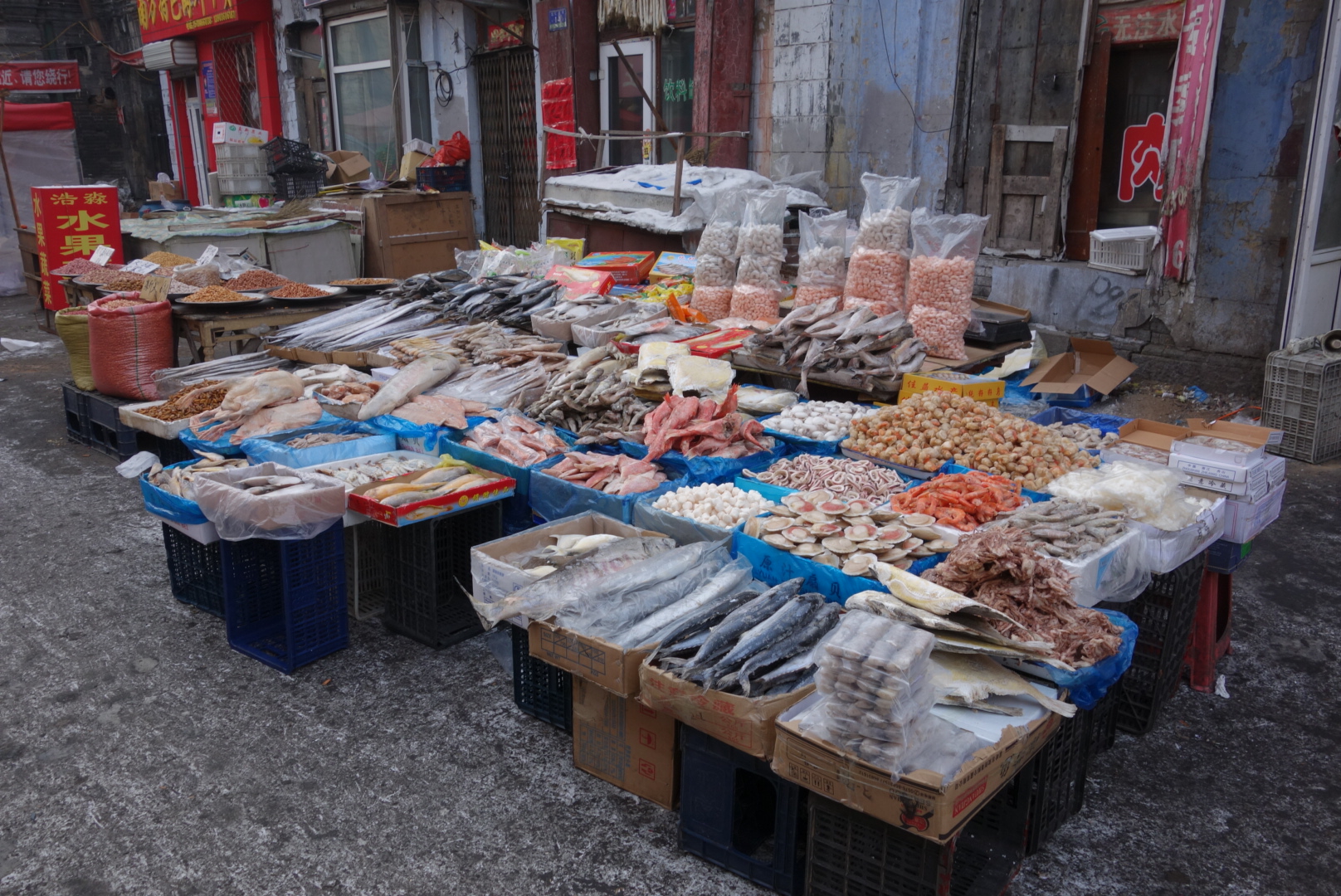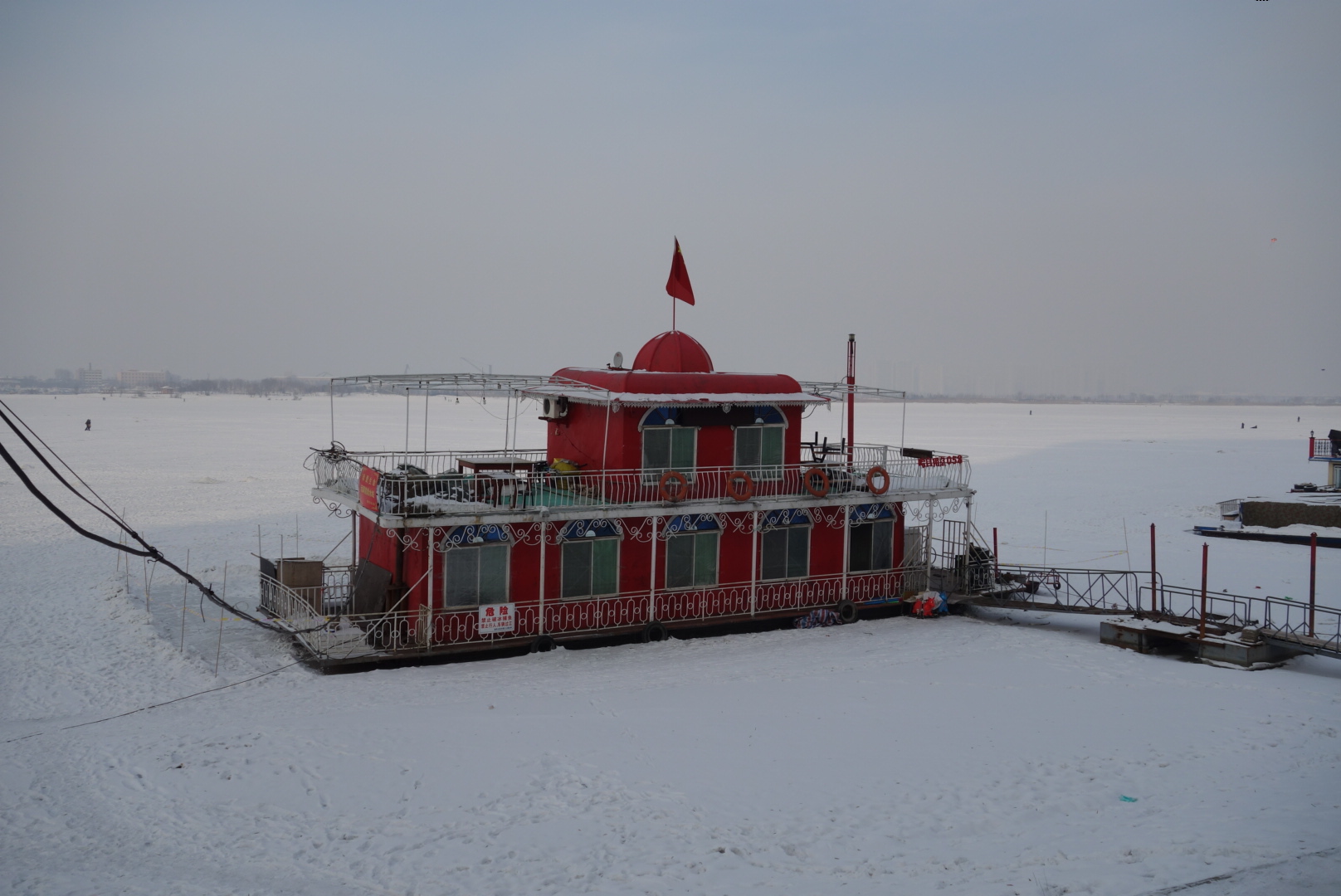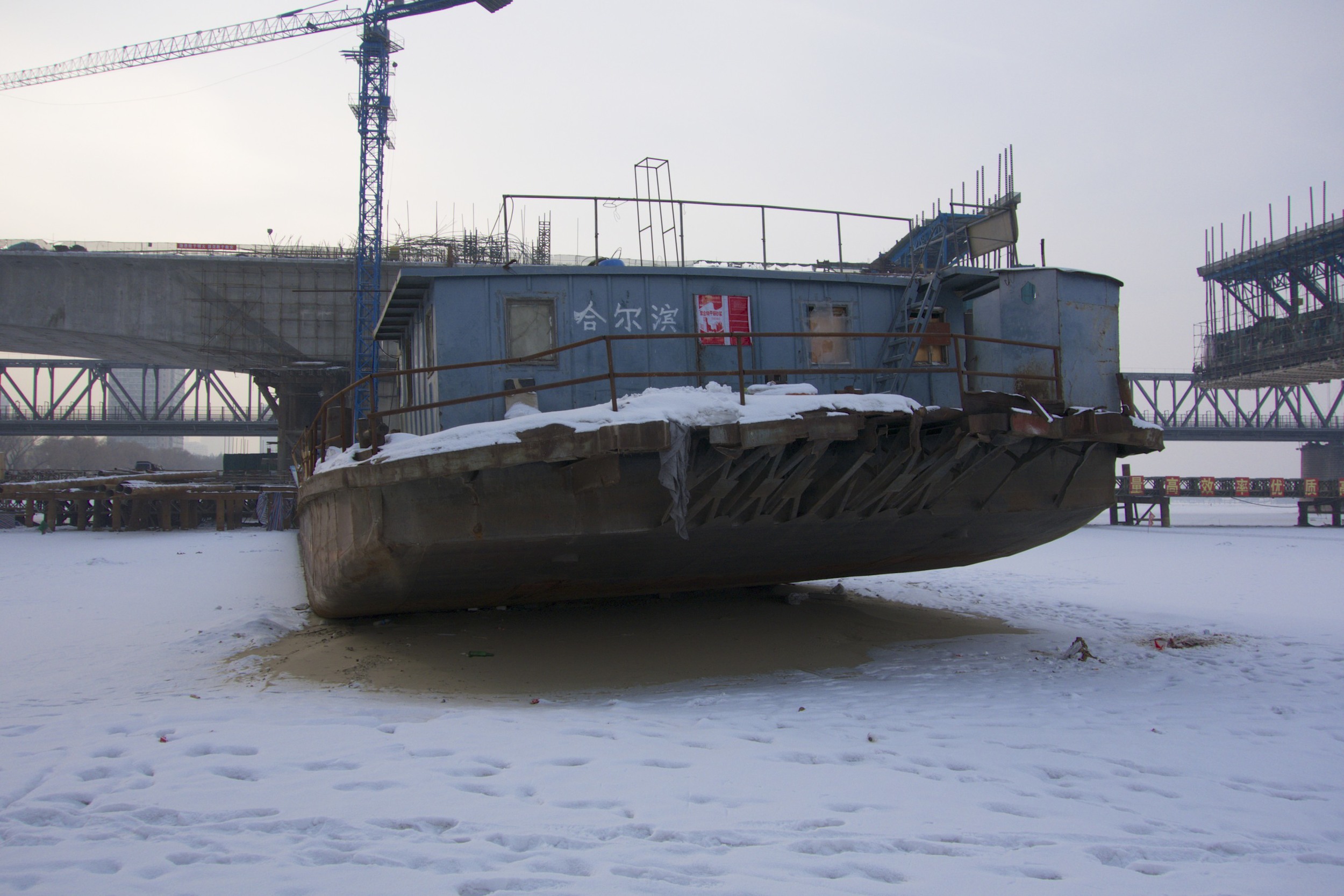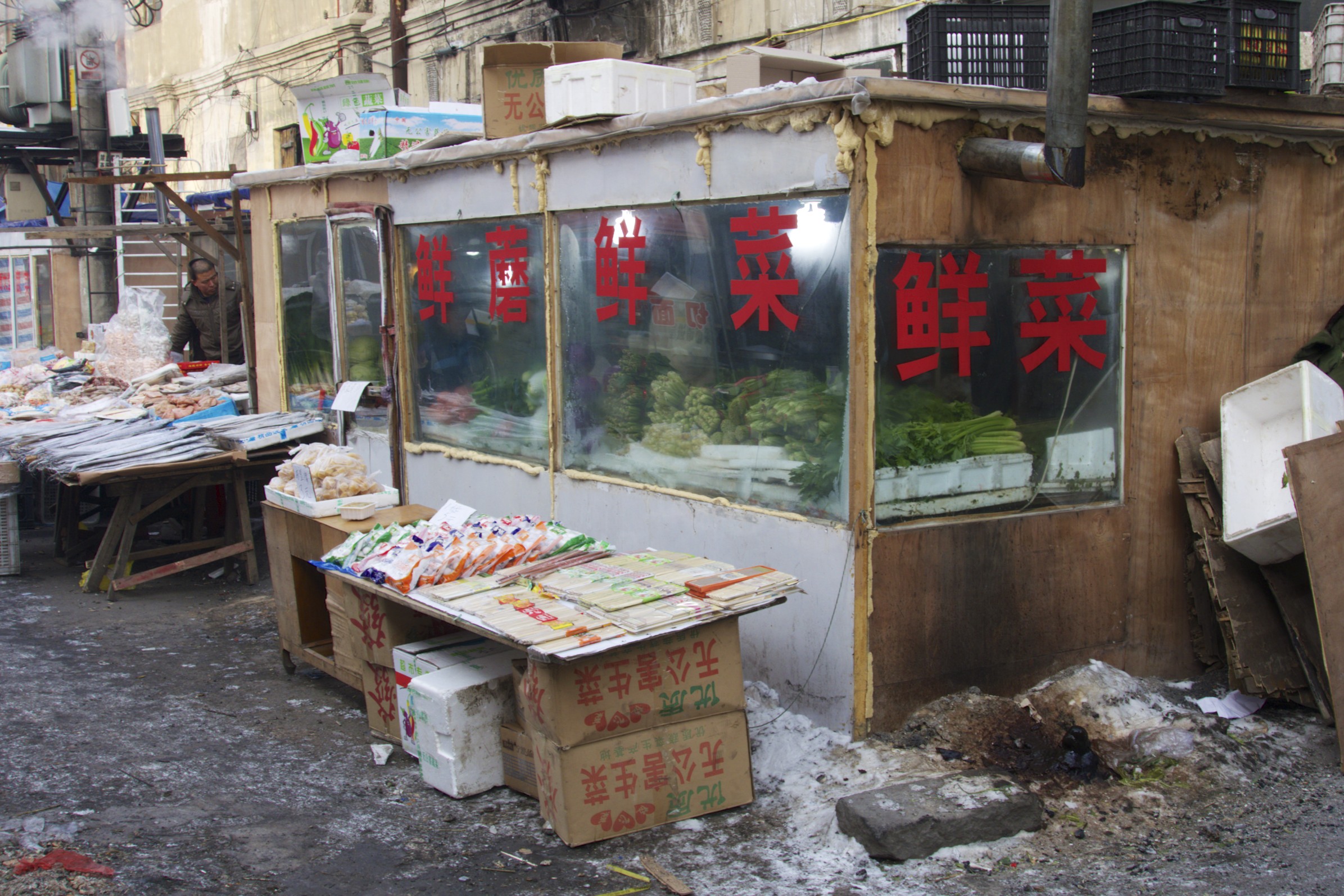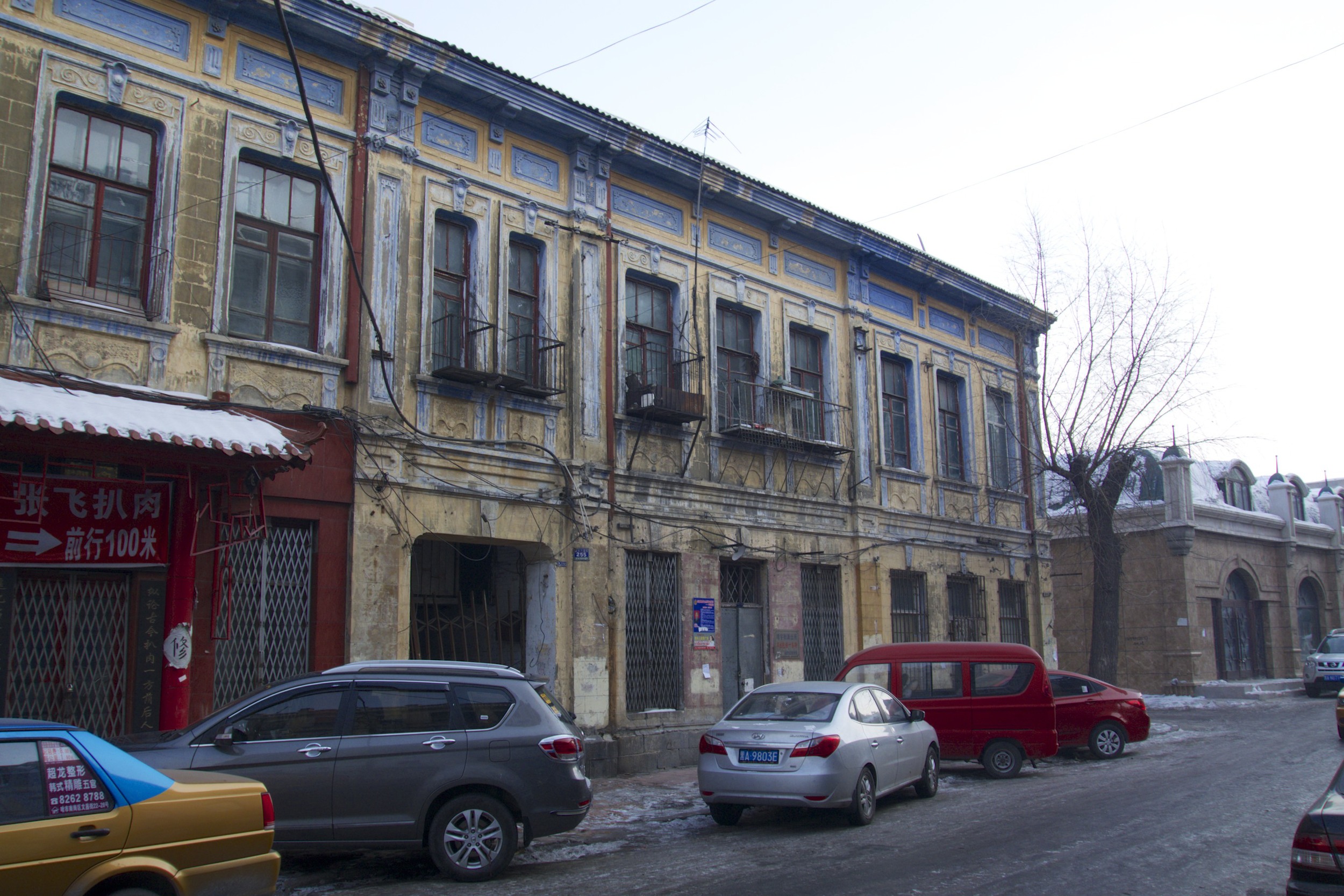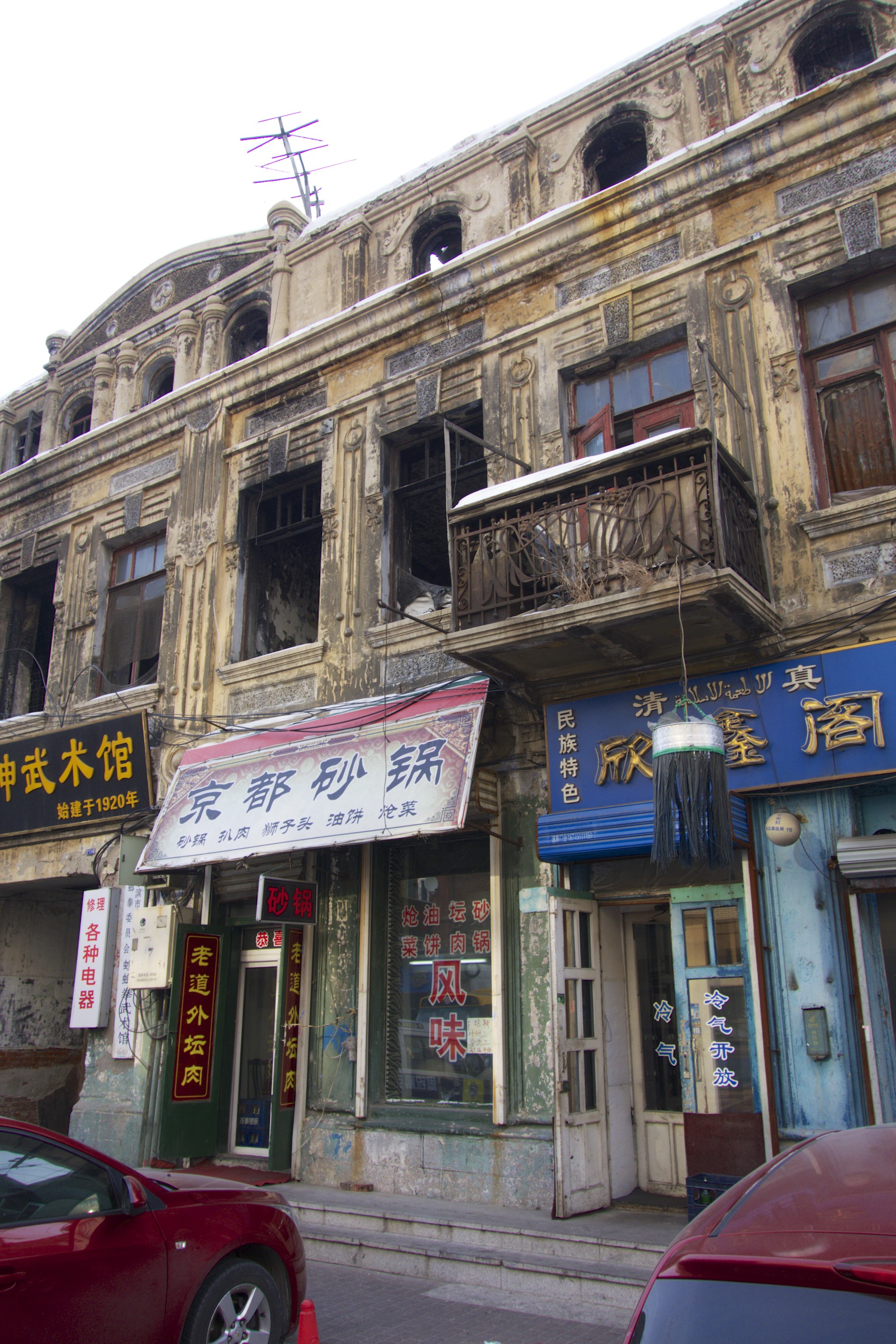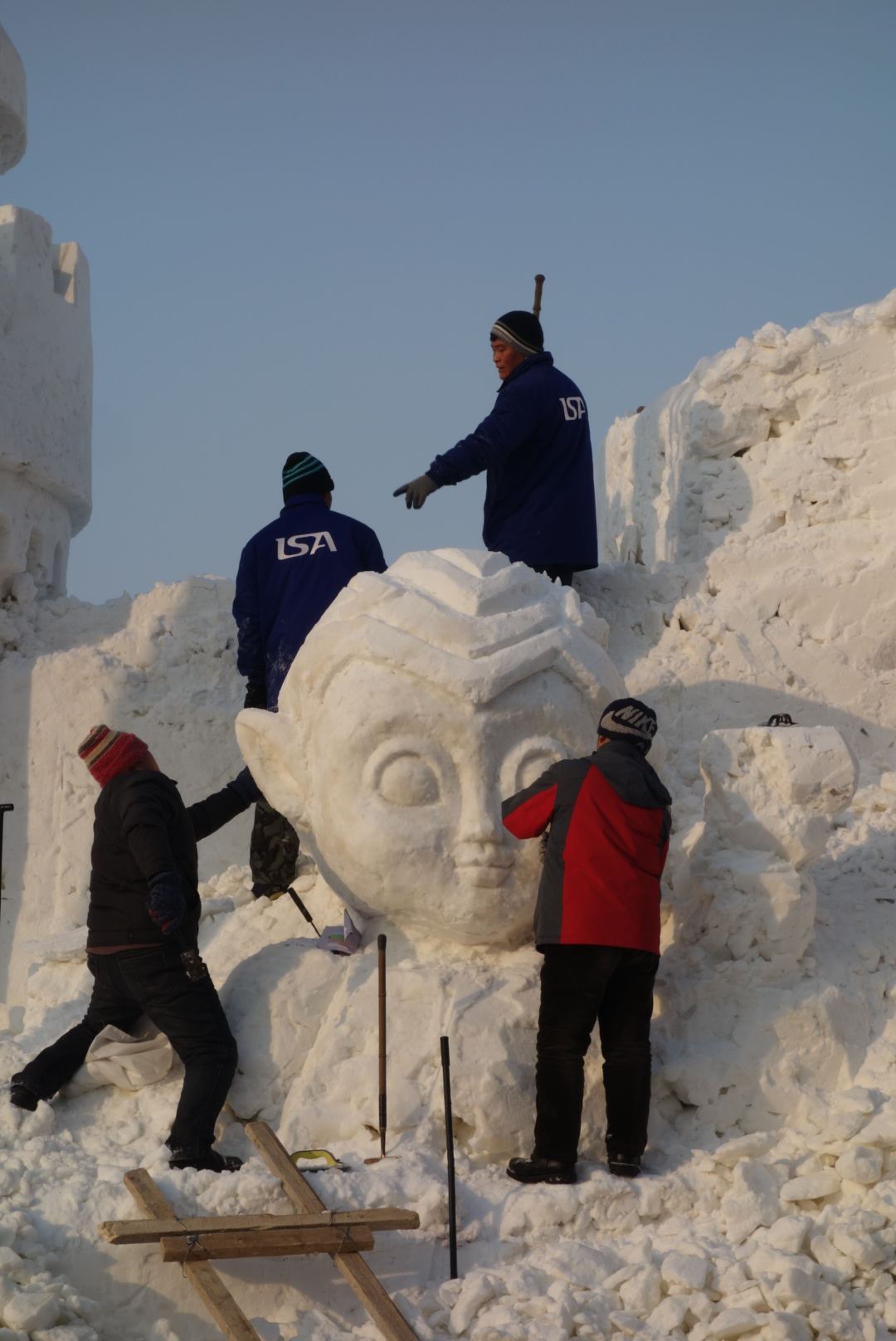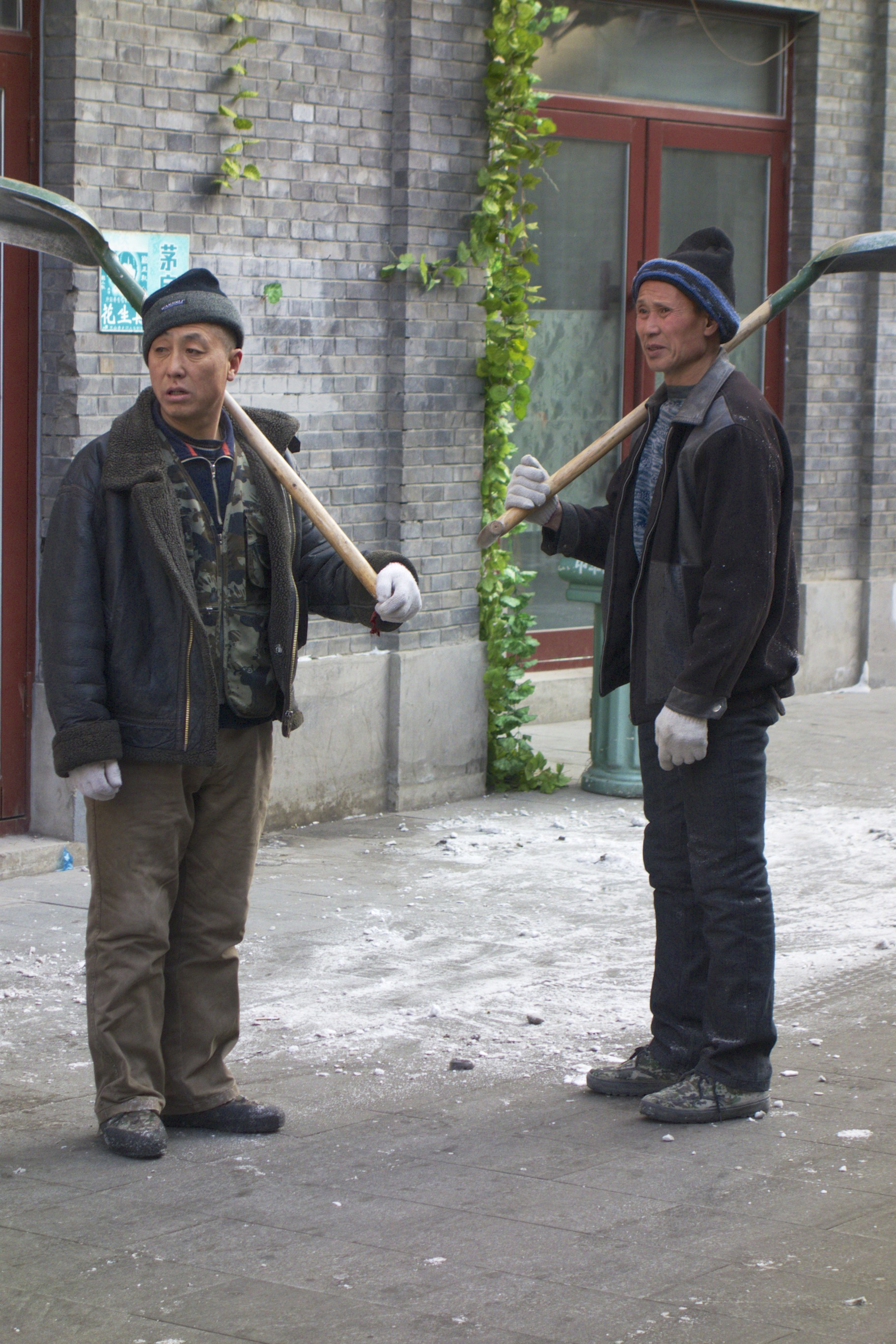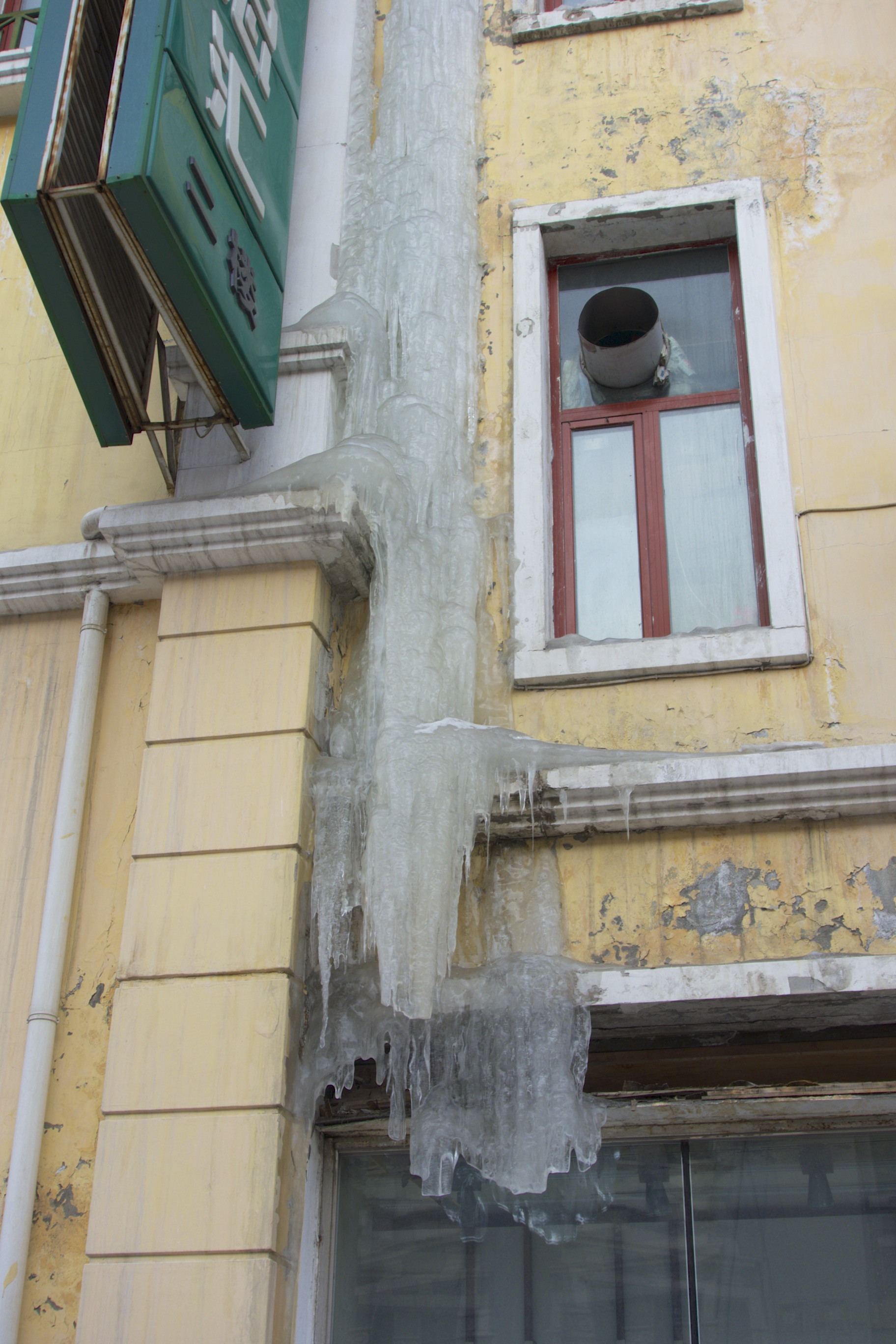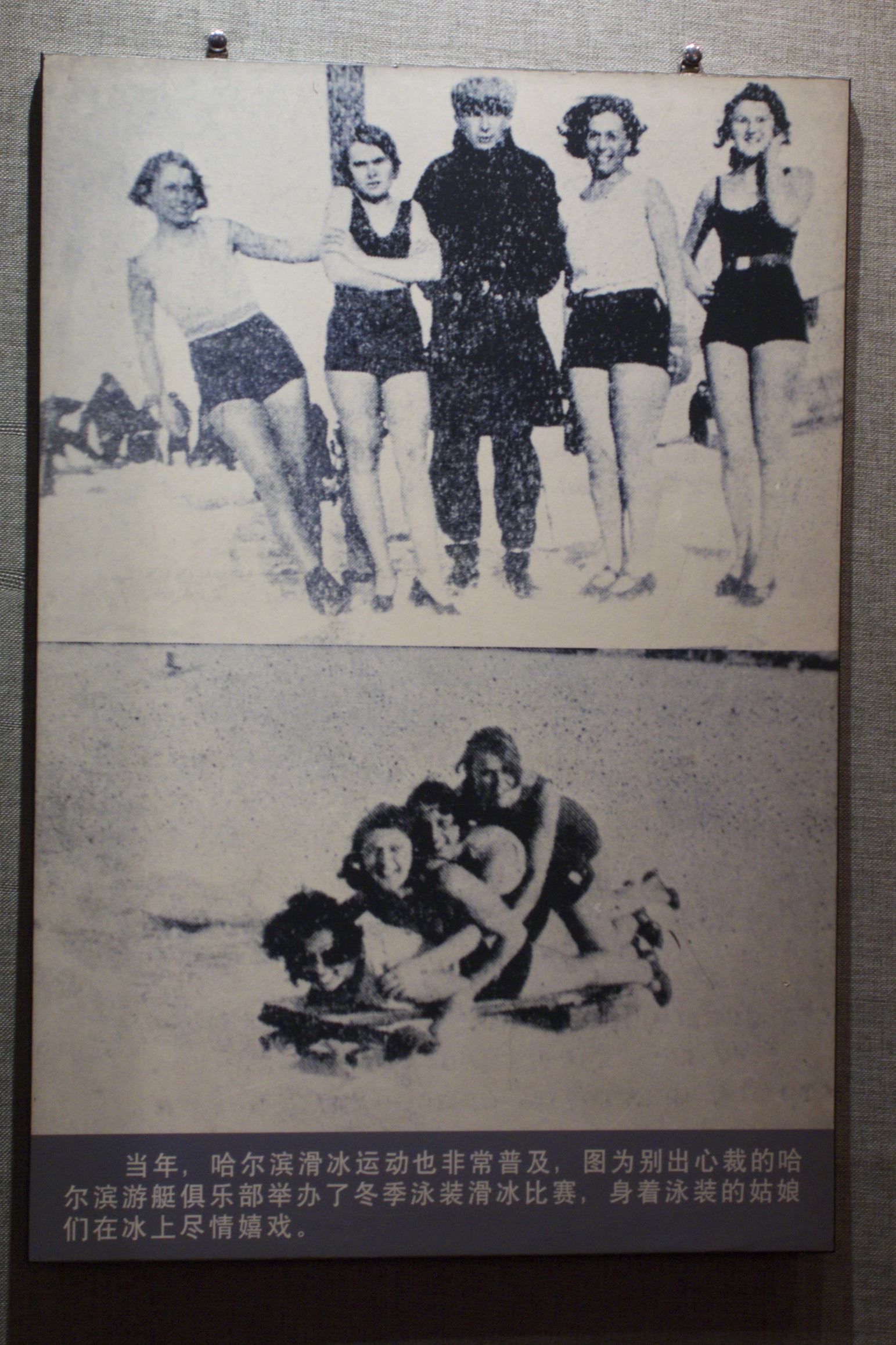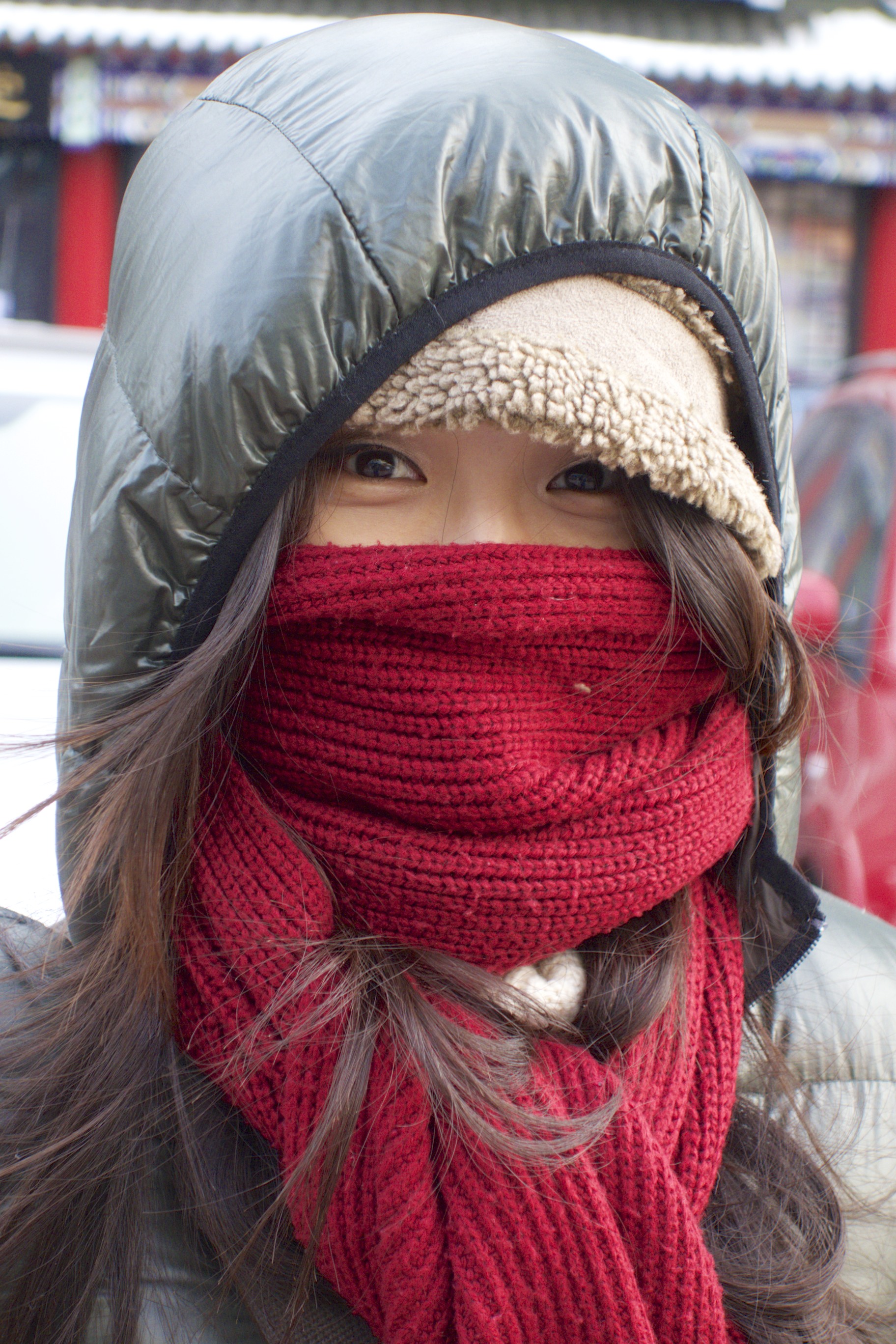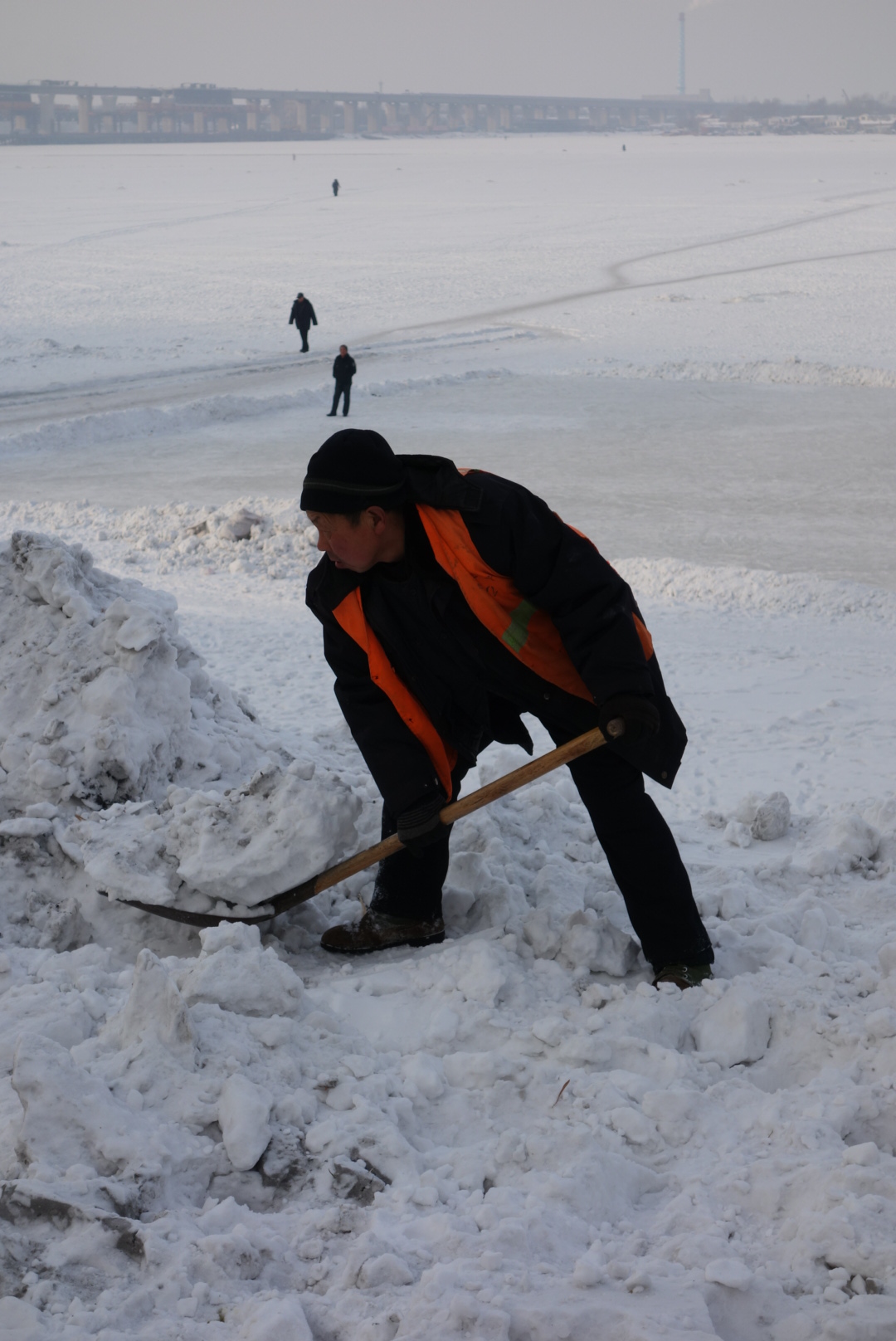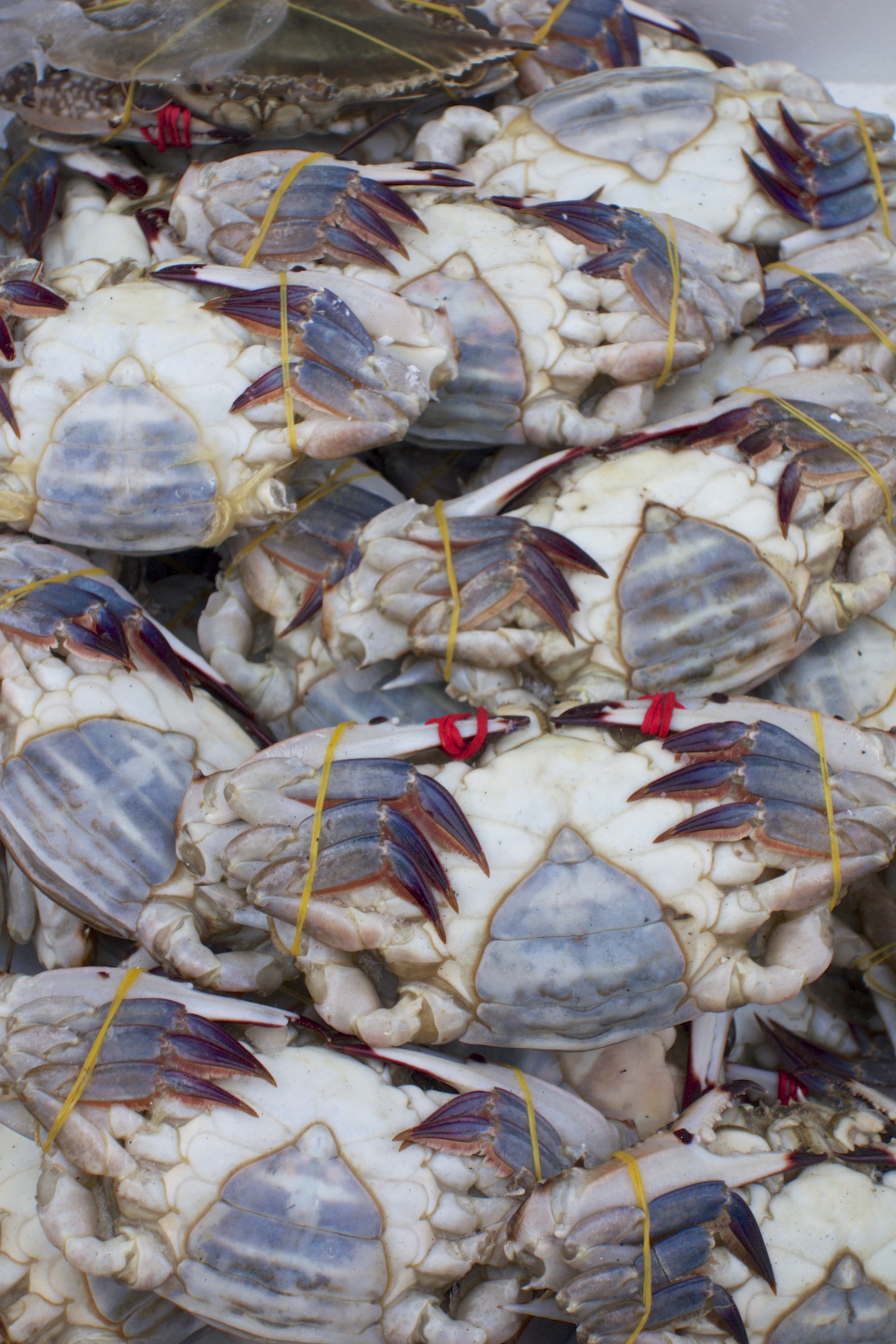White Christmas in Harbin
After returning from spring temperatures in Germany, a guarantee for white Christmas was making us head to Harbin in North China's Heilongjiang Province, one of the three Provinces forming Dongbei. Harbin is famous for its Ice Festival starring nice ice sculptures. But at sustained -20 Degrees Celsius, there is about anything you can do there which requires temperatures below freezing. The Songhua River is deeply packed with ice and all kinds of amusement is arranged on its surface.
Harbin street scene in the early 20th Century. Taken in the church St. Sophie, which is converted into a photo exhibition.
Harbin is often called the Moscow of the East, due to the early Russian settlements and also contemporary remains of Russian architecture. However, Harbin is still about 500 km away from the Russian border. The city was founded only in 1898 by a Polish engineer, during the construction of the Trans-Manchurian Railway which was linking Vladivostok, Dalian and Port Arthur to the Trans-Sibirian Railway in the East. Russia held a military base in Harbin during the Russo-Japanese War and they were defeated by Western expeditionary forces and Chinese allies soon after. Immigrants from over 30 counties settled in Harbin soon after and a big push of Russians came who fled Communism after the Russian Revolution - mainly White Russians, and about 20 000 Jews - specially in the 1930s fleeing the German Holocaust. They contributed a lot to Harbin's culture and economy and it is said that Western artists and fashion designers first reached Harbin, before Shanghai. Today, one of the very interesting destinations in Harbin is the Jewish Museum, which gives accounts to this period. In 1931 the Japanese invaded Harbin and a concentration camp style medical experimentation site, the Unit 731, was established and operated, committing war crimes at utmost horror. There is still a museum in the South of the city. But it is said to be not a real museum, but just an Anti-Japanes propaganda site, which is not worth visiting if interested in what really happened there. The Kuomintang never got hold of Harbin, but what followed were the Chinese Communists. Having Stalin and the Russian Communists in the North, and Mao and the Chinese Communists in their neck, many Jews took their chance and fled to the newly established Israel. Many other foreigners fled to Australia and Brazil. During Mao's era, Harbin was a focus point for projects of many of his misguided projects, like The Great Leap forward and it suffered severe destruction during the Cultural Revolution. There are still a few architectural remains, but generally the city now looks like any Chinese mega town. What has not been destroyed by Japanese bombs or Mao's Red Guards, has been flattened by modern real estate developments and makes Harbin as ugly as any modern Chinese city. Still there are attempts to remain cultural heritage, like music festivals and other cultural events. However, with no significant infrastructure, heavy pollution, and a corrupted local government, the city has a bigger fish to fry than being pretty.
